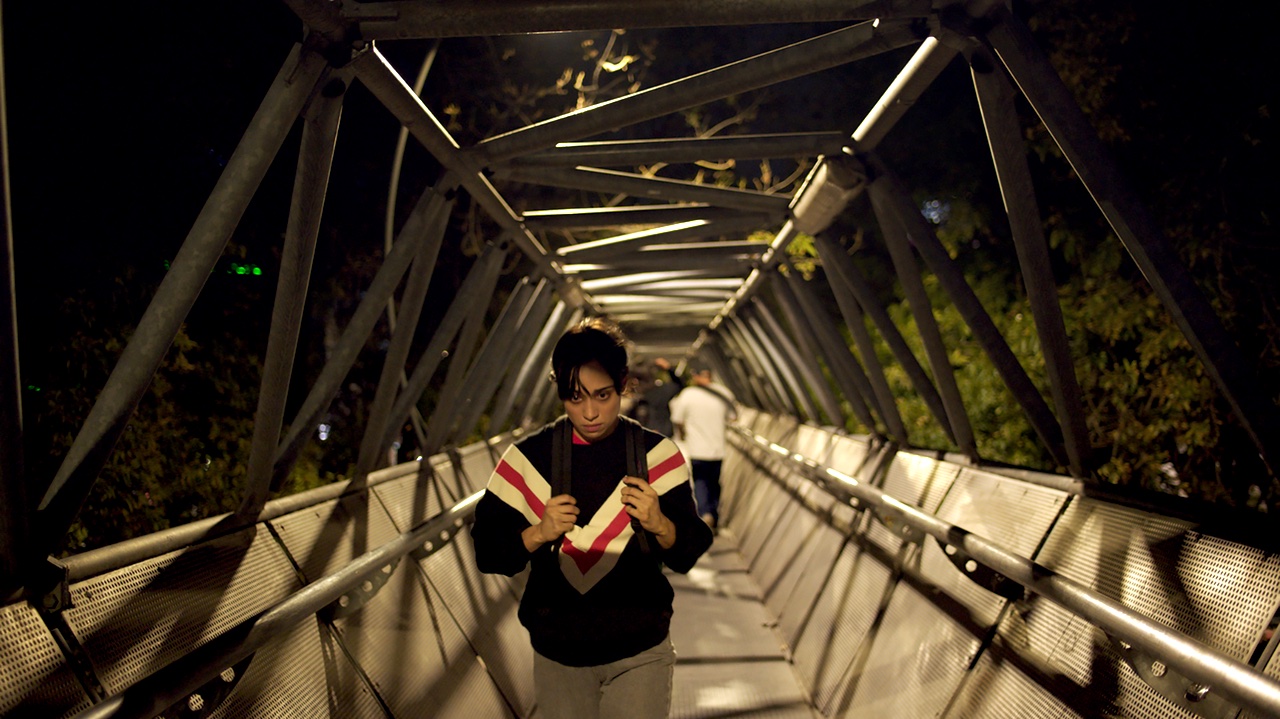People are often made to feel like we have to check off boxes in life. Many of us are pressured to go to college, get a good job, buy a house, get married and have kids. Many women and queer folks may want to check off those boxes, but can’t afford to. Many of us can check off those boxes, but don’t want to. And younger people not wanting to get married or have kids can feel especially foreign to older generations who can’t fathom a life without them. As a result, parents pressure their children to follow in their steps, sometimes with dark results. In Michelle Garza Cervera’s first feature film, Huesera, co-written with newcomer Abia Castillo, we follow a woman who has succumbed to those pressures, and her life becomes a profound nightmare. A brilliant horror film that tears apart the expectations of domesticity and motherhood, Huesera rips the traditional definition of “settling down” out of the dictionary and swallows it whole.
Historically speaking, religion has guided the choices of older generations, particularly in the Central America depicted in the film. In Huesera’s first scene, a group of Catholics walk up steep steps to the feet of a shrine dedicated to Our Lady of Guadalupe in Mexico City, where the mother of our protagonist begins to pray that her daughter will become pregnant. The camera pulls out wide to capture the statue in full, but a slow transition to a scene of a woman on fire makes the statue appear aflame itself. Damnation foreshadowed. It’s one example of Cervera’s brilliant visual language. Valeria (Natalia Solián) seems to have the perfect life, with a cozy home and a loving partner, Raúl (Alfonso Dosal). Then her mother’s prayers are answered and Valeria is suddenly expecting a baby girl. She appears ecstatic as she jumps in Raúl’s arms, but the happiness she exudes is really relief. She just wants to please her family.
Soon after learning about her pregnancy, she experiences morning sickness; she also begins to have hallucinations. She sees big spiders on the wall and women’s distorted bodies moving across the ground on all fours, with their bodies twisting as their bones crack, Suspiria-style. Bones cracking could be the film’s soundtrack, becoming a fantastic metaphor. As Valeria’s mother says, the pain of childbirth feels like all of your bones breaking. The stress of pregnancy gets to Valeria as she begins to crack her knuckles. The film’s title is taken from a piece of Mexican folklore: “La Huesera” (“The Bone Woman”), the story of a woman who gathers wolf bones in the desert until she assembles an entire skeleton to bring the wolf to life. Wolves in many cultures and folklore are associated with evil—in Navajo culture, for example, wolves are witches in wolf clothing. This association is telling, as any bad decision Valeria makes from here on will risk her family seeing her differently.
The only moments when Valeria doesn’t feel like she’s going insane are when she reflects on her youth. Reconnecting with her first love, Octavia (Mayra Batalla), Valeria admits that she doesn’t like domestication and that Octavia was the only other person with whom she can feel free and be real. The Valeria we’ve been following is a new version of herself; one whom Octavia claims is just pretending. She has fallen for the “clock is ticking” rush and the pressures of being the perfect woman, while also erasing a part of her sexuality. The relationship she once had with Octavia is the one she wishes she had kept, and it reminds the audience what some U.S.-made queer films make us forget: both domesticity and homophobia are still inescapable prisons in certain countries. Like Valeria, many women are stuck in tightly woven webs where even their own home becomes a suffocating environment.
Huesera is incredibly bold to examine how womanhood and motherhood aren’t synonymous, especially when many women can’t have children of their own. Valeria’s spiralling anxieties can also be seen as a commentary on the higher risk of depression among women during and after pregnancy. It’s a topic rarely spoken about, not only in the media we consume, but with one another. Valeria’s intense struggles hit with an emotional forcefulness thanks to Solián’s extraordinary performance—one of the year’s best. It’s terrifying watching: you flinch at every twist of her body. You’re on the edge of your seat waiting for her to crack both physically and mentally. Cervera’s and Castillo’s writing is ferociously honest about a rarely commented-upon topic.
Identity is multidimensional. It’s often defined and influenced by society and cultural backgrounds. Valeria is taught that being a mother is something she should want. Huesera is engrossing and clever in how it uses the horror genre to discuss a woman’s exploration of her individuality, hammering home the effects that societal and familial pressures have on women and queer people. It stomps on the ticking biological clock like an annoying insect. We make our own identities now—it’s no longer shaped for us.


 Why you can trust Xtra
Why you can trust Xtra


